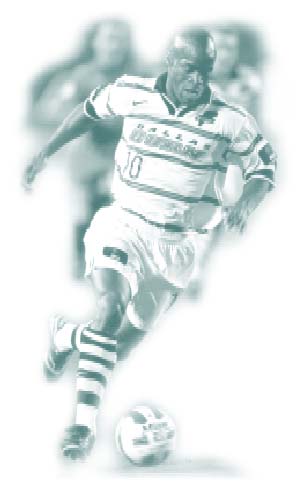
Effects of Using Drugs Key Play #3 advises you to be sure that your players are aware of the risks of drug use. A simple description of the effects of using drugs is often more effective than a long lecture filled with drug horror stories. Using short, to-the-point descriptions of the negative effects of drugs -- such as those listed below -- will work well in capturing your students' attention and keeping them engaged.
Performance in many areas is hampered Drugs can have lasting effects on the brain and body. Using drugs often compromises judgment and physical abilities and makes a person unable to perform in a variety of contexts: Academics. Athletics. Music or dramatic arts. Decision making in everyday situations. Driving any kind of vehicle. Operating equipment or tools. Drug use also diminishes health, physical appearance, and motivation. It impairs judgment, leading to risky decisions and behaviors, and it directly reduces physical and intellectual performance in many areas. | |||||
|
The risk of drug-related problems is increased A young adult who uses drugs increases his or her risk of experiencing any (or all) of the following: Legal problems. Addiction. Involvement in a traffic accident. Involvement in a swimming, boating, or other type of accident. Engaging in risky sexual behaviors that may spread disease. Athletic injuries. Development of life skills is impaired An adolescent's drug use will also mask problems and interfere with the normal development of such important life skills as: Stress management. Conflict resolution. Problem solving. Goal setting. Physical, emotional, social, and spiritual development is damaged A young person's sense of independence, responsibility, and purpose is best achieved without the interference of drugs. The following types of development depend on a young person remaining drug free: Normal psychological development. Appropriate moral and spiritual development. Ability to solve daily problems and cope with stress. Ability to interact and get along with others. | |||||
|
The game will be affected Sports were designed to be a fun and competitive way to gain exercise. They were not designed to include drug use. Communicate the serious effect of drugs on the game by asking your players to guess how their foul shots, field goals, or home runs would be affected by drugs.To put it simply, they won't happen. Scientific studies show that drugs impair coordination and abilities. How does this translate on the athletic field? A basketball player using drugs is more likely to miss a
game-winning free throw.
A skier using drugs likewise dramatically increases his or
her chances of suffering a career-ending injury.
If a player's performance is weak because of drug use, the player
will have to live knowing that he or she has disappointed the team,
the coach, and others -- all for a few minutes of a false high. | |||||
|
Team spirit will suffer Drugs negatively affect not only a team's performance, but its sense of team spirit and cohesiveness as well. In particular, drug use can cause the following effects on the morale of the team: Lack of togetherness. Lack of concentration. Lack of commitment. Lack of energy. Lack of trust.
| |||||
|
